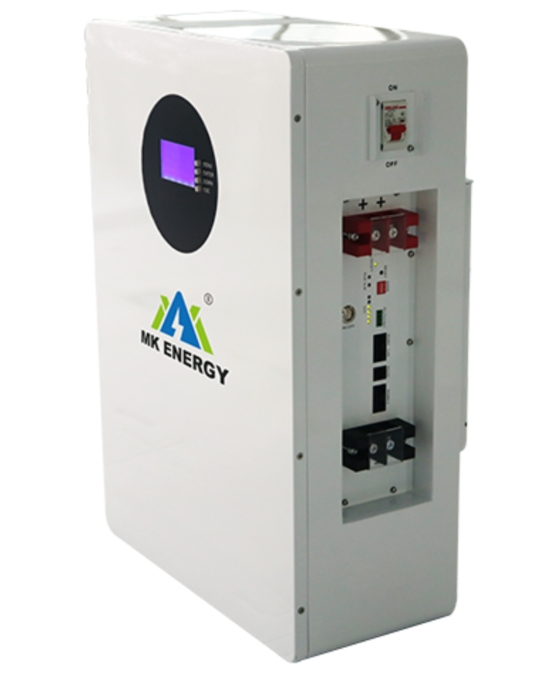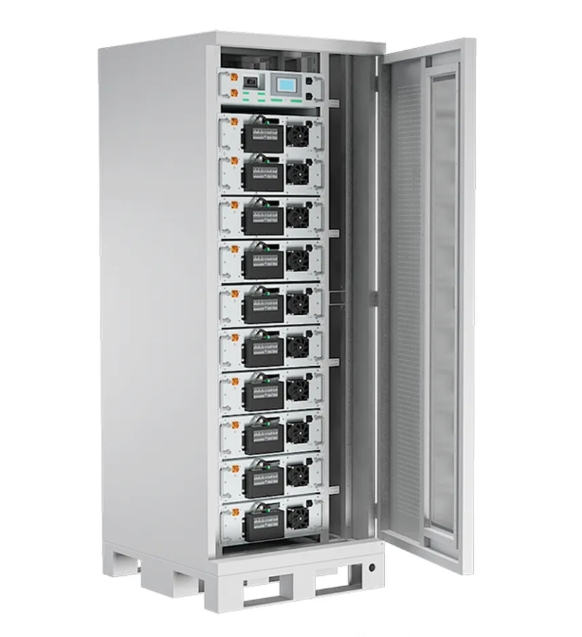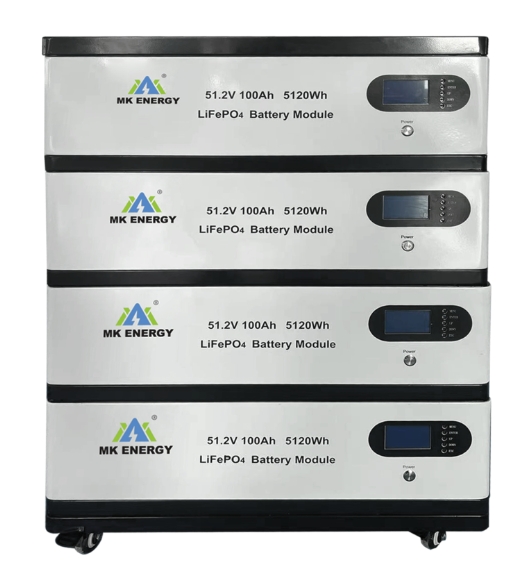Lithium-ion batteries are changing how we use electricity and power our devices, bringing high energy density, lightweight construction, and long-lasting performance to our home applications. However, there are many types of lithium batteries on the energy storage market, and people often think about this question when purchasing: Which type of lithium ion battery is the best? In this guide, we share a few of the most common types of lithium batteries to help you decide.
Wall-mounted lithium ion battery
Wall-mounted lithium ion batteries are suitable for use in the home. Typically, users mount them outdoors on a wall or rack or in a basement. The main feature of wall-mounted lithium-ion batteries is their small size, saving installation space. Unlike traditional lead-acid batteries, they are suitable for installation in space-constrained applications without sacrificing performance or efficiency. In addition, the wall-mounted lithium-ion battery’s high energy density and fast-charging capabilities provide reliable, efficient backup power when power is unavailable and consistent performance over multiple charge and discharge cycles.
Rack mount lithium ion battery
Rack-mountable lithium-ion batteries are a versatile energy storage solution that can meet the diverse needs of residential, commercial, and industrial applications. One of their main features is their modular and stackable design, which easily enables integration into data centers, telecommunications facilities, and industrial plants. Typically, these batteries reside in durable and fire-resistant enclosures that securely mount in standard 19-inch or 23-inch equipment racks, ensuring compatibility with rack infrastructure. Their scalability and ease of configuration for parallel or series connections empower enterprises, data centers, and industrial facilities to adapt their energy storage systems to changing needs.
Stack-based LiFePO4 Battery
Stack-based LiFePO4 batteries use a unique stacking architecture, in which the core is a series of individual Lithium Iron LiFeO4 batteries stacked together to form a single battery module. They are typically arranged into flat, compact structures and connected in series to increase voltage while maintaining a relatively low profile. The stacked architecture is designed to efficiently utilize space and integrate into various applications in the space. Therefore, this makes them ideal for applications such as computers, security systems, emergency systems, etc. Compared with lead-acid batteries, it extends the cycle life by 20 times and can also provide 3 times the power of lead-acid batteries at high discharge rates.
Lithium iron phosphate (LiFePO4) battery
LiFePO4 batteries differ from traditional lithium-ion batteries because they are chemically more stable and reduce the risk of thermal runaway. At their core, they have a strong crystal structure that is highly resistant to overcharging, over-discharging, and thermal stress. As a result, people consider LiFePO4 batteries one of the safest lithium-ion battery chemistries on the market today. In addition, they have longer cycle life than other lithium-ion battery chemistries and can withstand thousands of charge and discharge cycles without significant performance degradation. Their high energy and power densities allow them to store large amounts of energy. Suitable for applications requiring UPS, backup power, and telecommunications.
Lithium titanate (LTO) battery
Lithium titanate batteries are an advancement in lithium-ion battery technology. They use lithium titanate as the anode material to provide high power output and fast charging capabilities without sacrificing energy density. Lithium titanate batteries experience minimal performance degradation after enduring hundreds of thousands of charge and discharge cycles. Lithium titanate’s strong crystal structure also provides stability and resistance to electrode swelling, allowing it to maintain its performance and reliability over a long service life. Therefore, lithium titanate batteries are very suitable for energy storage systems for renewable energy integration and grid stabilization.
Choose the one that best suits your needs!
Choosing the best type of lithium battery depends on your use case, including your environmental requirements, performance standards, safety considerations, and financial budget. Each type of lithium battery has unique advantages and characteristics. It is important to know your situation when making a decision. The ones mentioned in the guide are for your reference only.




